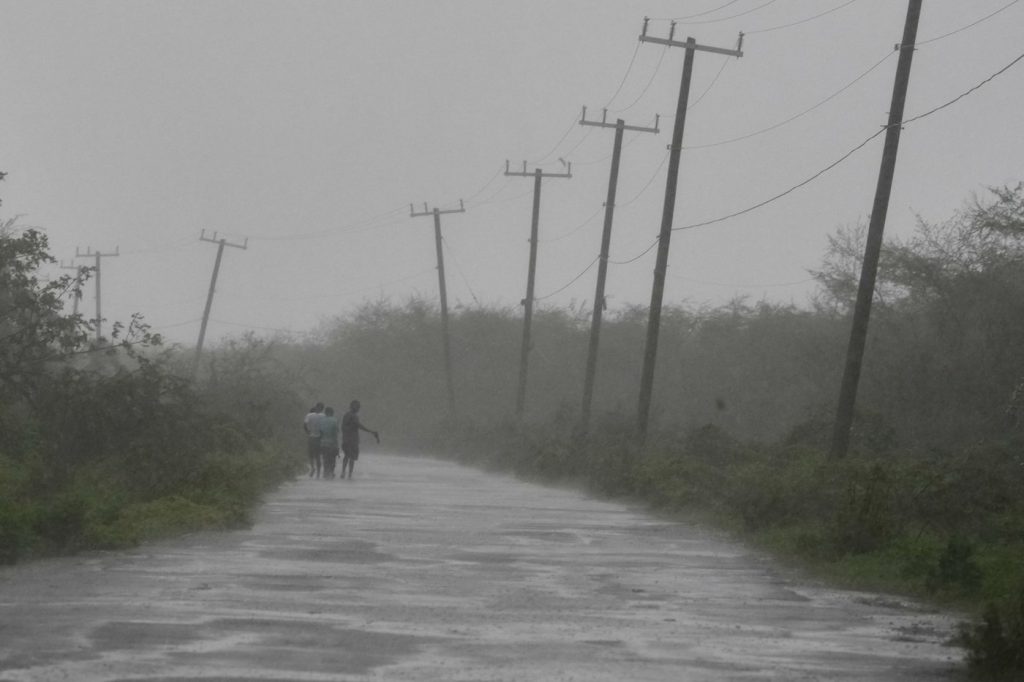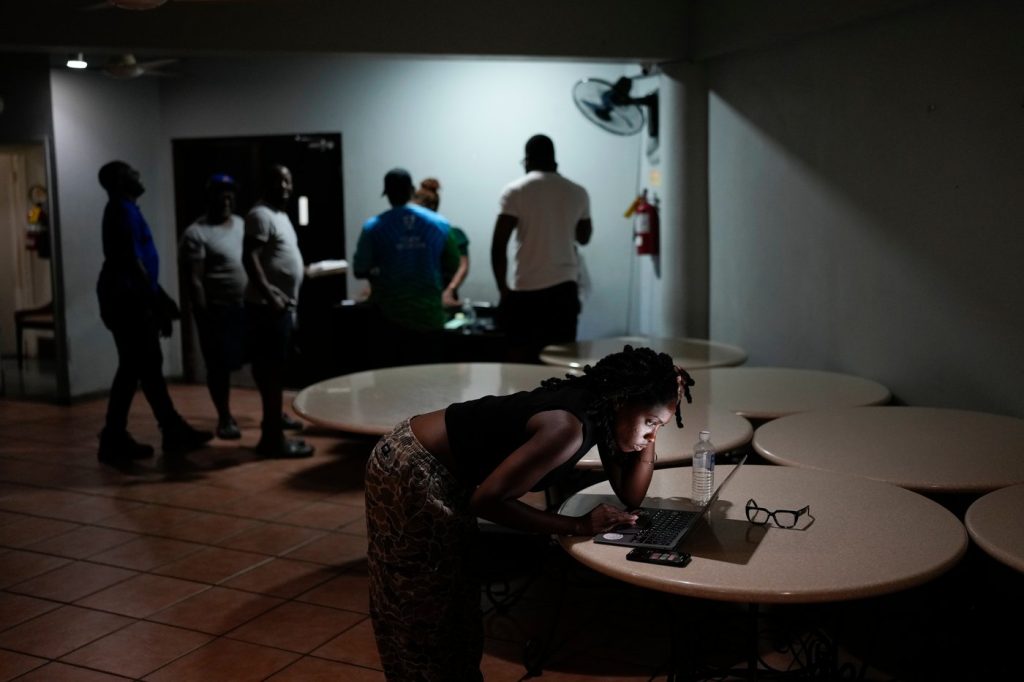KINGSTON, Jamaica (AP) — Heavy floodwaters inundated southwestern Jamaica and fierce winds tore roofs off buildings as Hurricane Melissa struck the Caribbean island as a catastrophic Category 5 storm, one of the strongest Atlantic hurricanes recorded. With sustained winds reaching 185 mph (295 kph), the storm caused widespread destruction, including landslides, downed trees, and significant power outages.
Prime Minister Andrew Holness noted that there is no infrastructure in the region capable of withstanding a Category 5 storm, stating, "The question now is the speed of recovery. That's the challenge." In Black River, at least three families were trapped by floodwaters, and rescue crews were unable to reach them due to dangerous conditions. Desmond McKenzie, the deputy chairman of Jamaica's Disaster Risk Management Council, emphasized that extensive damage was reported in St. Elizabeth parish, describing it as “underwater.”
As Hurricane Melissa continued its assault, meteorologists warned that its counterclockwise rotation would lead to a heavy storm surge affecting northern Jamaica through the night. The storm was reduced to Category 4 strength and was moving towards Cuba, expected to cross the eastern part of the island overnight. Nearly 15,000 people were reported to be sheltering in Jamaica, and about 540,000 customers, accounting for 77% of the population, were left without power.
While officials strongly advised against venturing outside, some curious teenagers sought the thrill of experiencing the storm firsthand. "When the wind howls, it feels as if the world is falling apart," said 15-year-old Gavin Fuller, who expressed curiosity about the phenomenon. Colin Bogle, a Mercy Corps adviser, shared that most families chose to stay put, despite evacuation orders in flood-prone areas. He recounted the anxiety among those sheltering with him, hearing a loud explosion during the storm that plunged their area into darkness.
On Tuesday night, Hurricane Melissa had shifted to top sustained winds of 130 mph (215 kph) and was located approximately 110 miles (175 kilometers) southwest of Guantánamo, Cuba. The storm had already tied key records at landfall, including wind speed and barometric pressure. It was noted as the strongest storm to hit the island since record-keeping began 174 years ago. Hurricane scientists like Phil Klotzbach remarked on the remarkable intensity of Melissa, labeling it a "beast of a storm."
As warnings of a life-threatening storm surge of up to 13 feet (4 meters) were issued, concerns grew for coastal hospitals. Four major hospitals reported being damaged, leading to the evacuation of 75 patients. In one reported incident, a man called for urgent help for a woman in labor, highlighting the precarious nature of emergencies during the hurricane.
In Kingston, officials cautioned residents about potential crocodiles being displaced by flooding. McKenzie indicated that the government had preparations in place for rescues, readying boats and helicopters to assist those in need as soon as the storm passed. The death toll from Melissa stood at seven across the Caribbean, with fatalities reported in Jamaica, Haiti, and the Dominican Republic.
As the storm moved towards Cuba, preparations intensified. Cuban President Miguel Díaz-Canel urged citizens not to underestimate the storm's power. Evacuations were conducted in areas of eastern Cuba, with reports of families seeking shelter, some traveling via bus, trucks, and even horse-drawn carts.
Authorities organized the evacuation of more than 200,000 residents in vulnerable areas, with shelter preparations visibly increasing throughout the day. In the face of uncertainty brought about by Hurricane Melissa, many expressed their concerns about the impending storm, hoping to endure its wrath without severe consequences.
Total, U.N. agencies and various nonprofit organizations were positioned with essential supplies to respond swiftly once the storm passed. As officials focused on the immediate measures to clear debris and distribute aid, the need for recovery and support was underscored as the region faced the aftermath of a powerful hurricane.












